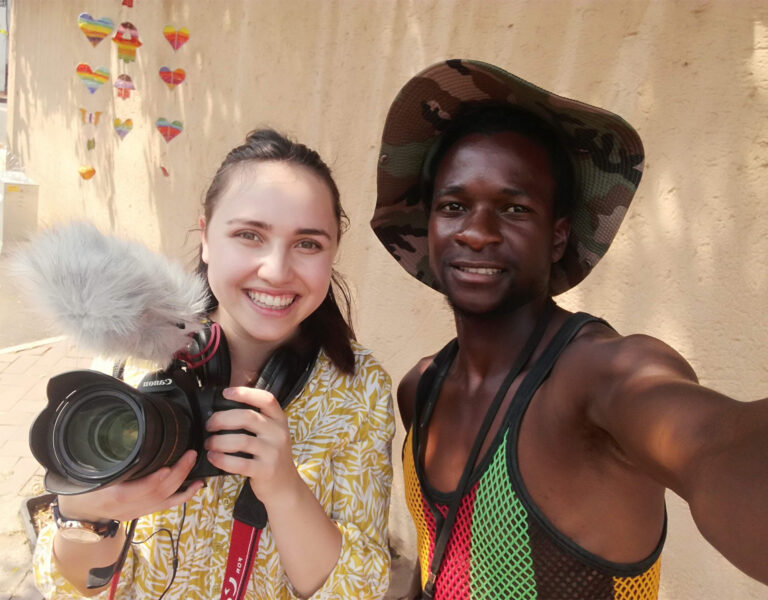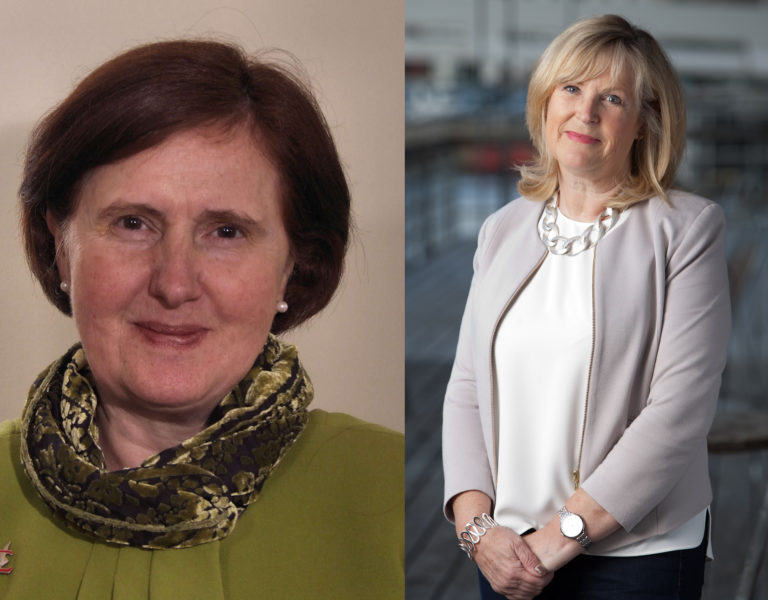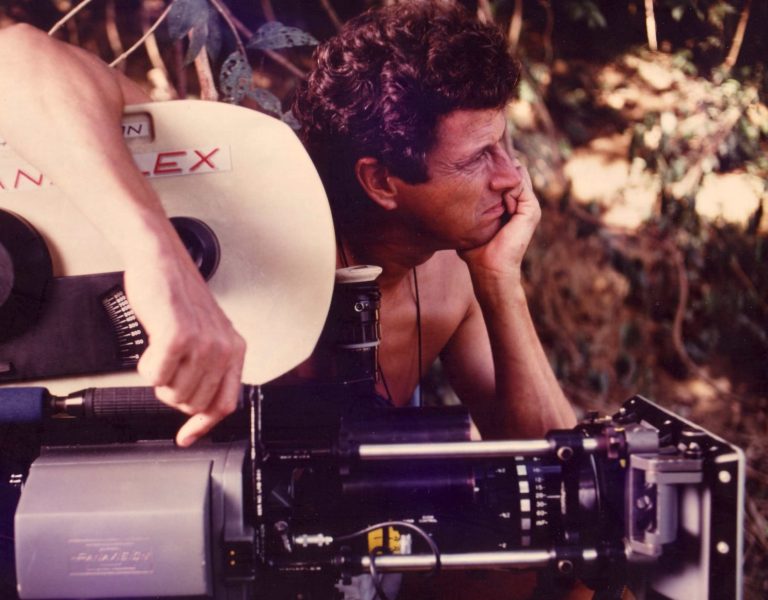INSPIRING FILMMAKERS OF THE FUTURE
MetFilm School is a leading film and television media school with an approach to learning embedded in the industry.
When writer-director Nikyatu Jusu’s psychological horror Nanny won the Grand Jury Prize at Sundance last year, it not only acted as international calling card for its cinematographer Rina Yang BSC but a showcase for the work of the MetFilm School where Yang studied.

Another alumnus is globally successful producer Leopold Hughes who has co-produced Star Wars: Episode VIII – The Last Jedi (2017), Glass Onion: A Knives Out Mystery (2019) and last year’s Glass Onion sequel for Netflix. Last year, former student Tabish Habib associate produced Joyland which won the Jury Prize at Un Certain Regard in Cannes and featured in the last issue of British Cinematographer; and filmmaker and actor Adjani Salmon was named a talent to watch by the RTS and BAFTA and trade title Screen.
With campuses in London within Ealing Studios and a second at Garden Studios since 2021, in Berlin at BUFA Studios since 2013, and in Leeds at Prime Studios, the School provides practical part-time and full filmmaking courses from entrant level upwards including an intensive BA and an MA programme.
The Leeds site has barely been open six months and has 100 students on a campus set to grow dramatically in the next few years, according to MetFilm director Jonny Persey.
“What is really fascinating is that we attract students from all over the country to both London and Leeds, both places at the heart of the film and TV industry. Similarly, Berlin is a vibrant film destination. In all three campuses the industry demand for our graduates is very strong.”

MetFilm School was launched in 2003 by Thomas Høegh, owner of Picturehouse Cinemas in Clapham where its first short courses were held. Persey joined two years later, coinciding with the school’s move to Ealing and the launch of its first one-year course.
“Twenty years ago, film courses were very expensive by necessity because of the cost of kit and lack of funding,” he says.
The School’s story since then has been one of growth by accessibility. Its footprint widened geographically and introducing undergraduate programmes enabled it to access government funds.
“It allowed us to broaden our intake, including international students, and brought our costs in line with that of a typical university level programme. We introduced bursaries and a scholarship programme and then MA programmes.
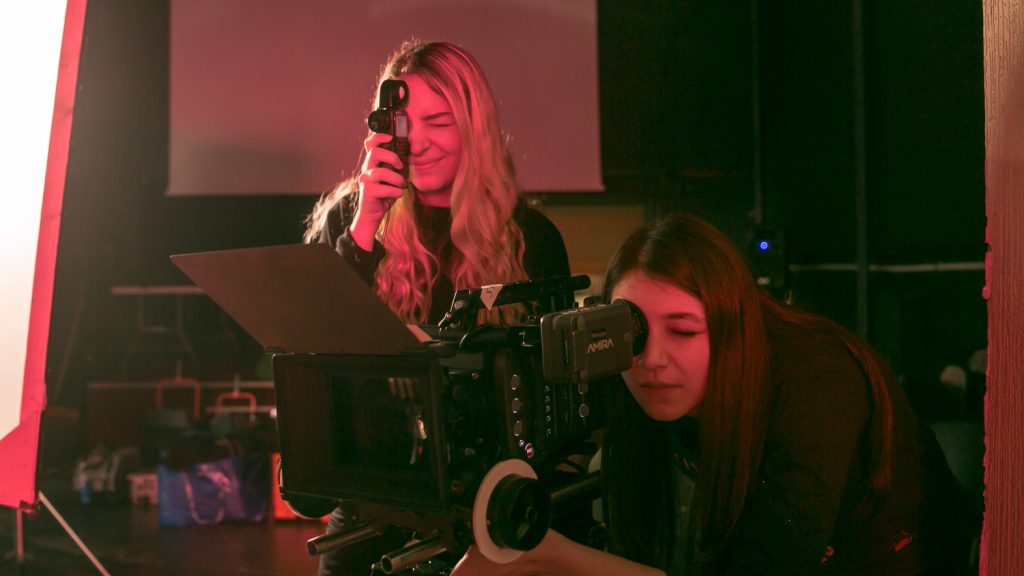
“One constant remained which is to inspire students that working at the very top of the industry is not something to just aspire to but something that is within reach.”
Persey is also an independent film producer and leads MetFilm with the philosophy that the best way to learn is to actually make films with the support and guidance of industry practitioners.
He says, “You can’t make films without having a professional environment which is why, when you walk into MetFilm, it is very deliberately an environment that looks like the film and TV industry and not a university. At the same time we work hard to bring academia and real-world experience closer together.”
Students are able to use the virtual production stage at Garden Studio’s Park Royal studio complex. The facility’s existing 12m x 4m VP stage is about to get a bigger sister stage featuring a 26 x 4.5m ROE semi-circular volume. Rental company Procam Take 2 has a hire shop onsite. MetFilm’s Berlin facilities include a 1,500sq ft studio, two standing sets, a 5:1 surround sound screening room, and post-production suites.
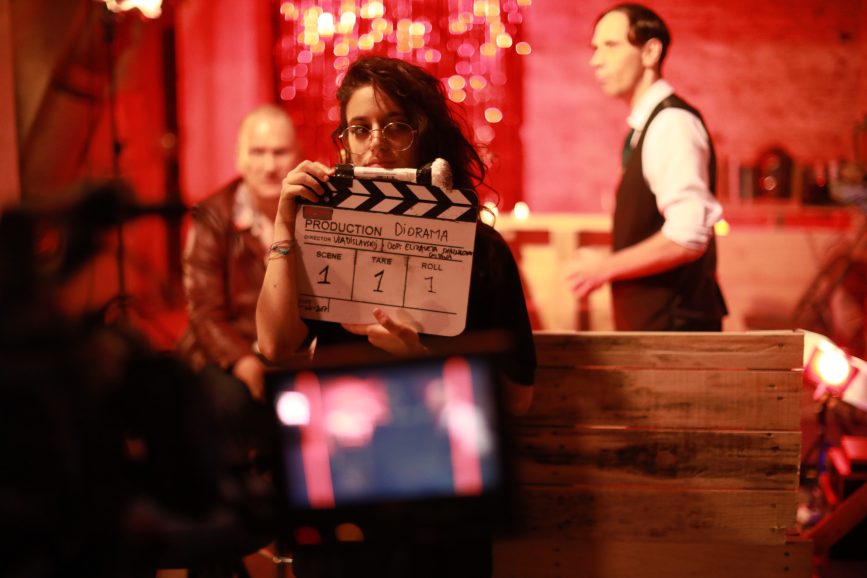
Aside from the hardware, MetFilm School operates alongside MetFilm Production, an award-winning feature film production company; and MetFilm Sales, a boutique international sales agency.
“Production, sales and distribution all exist independently and synergistically with MetFilm,” Persey says.
MetFilm Productions has made 25 features including the 2016 documentary How to Change the World which won a special jury award at Sundance and a prestigious Grierson Award. For the last 10 years each project has involved a significant number of undergrads.
The Reason I Jump, produced with 19 MetFilm students and graduates on the crew, won the 2020 Audience Award at Sundance and distribution on Netflix in the US and Disney+ in the rest of the world.
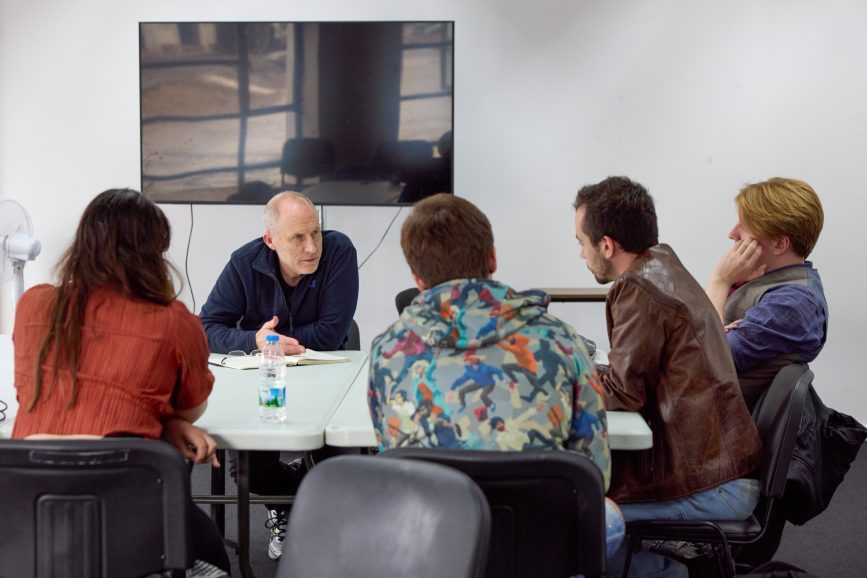
MetFilm is currently working on its biggest project yet, a four-part TV series on which 25 students are involved.
Yang is perhaps the most notable alumni of the school’s cinematography course. She was recently accredited as a member of the BSC, the first Asian woman to break that ceiling.
Of the school’s 1,000 full time students, less than half the current annual intake are female, although this ratio is improving with initiatives such as a Women in Screen Industries scholarship.
“Achieving diversity takes time. You are seeing more and more women succeeding in demonstrating prowess in all aspects of filming including in technical and traditional male dominated roles.”
Addressing diversity in race, Persey says, “It’s important to recognise the progress that has been made but also not to celebrate it at the expense of being complacent.”

Later this year, a new series of undergraduate programmes will launch around technology-based production. MetFilm is working with Garden Studios to develop the courses which will complement existing screen acting courses using performance capture.
“The technology and the methodology of virtual production is changing so fast which is both incredibly exciting in terms of its potential for storytelling but means everyone is learning on the job.”
It’s working though: former student Marta Baidek was VP manager on Ant-Man and the Wasp: Quantumania.
Data produced by the government shows MetFilm to be among the top higher education institutions for post graduate earnings and the extent to which alumni are in employment.
“Our strategy is to give everybody the skills to get a job. We also know from former students that they are succeeding and that the work we are doing is making a difference.”

